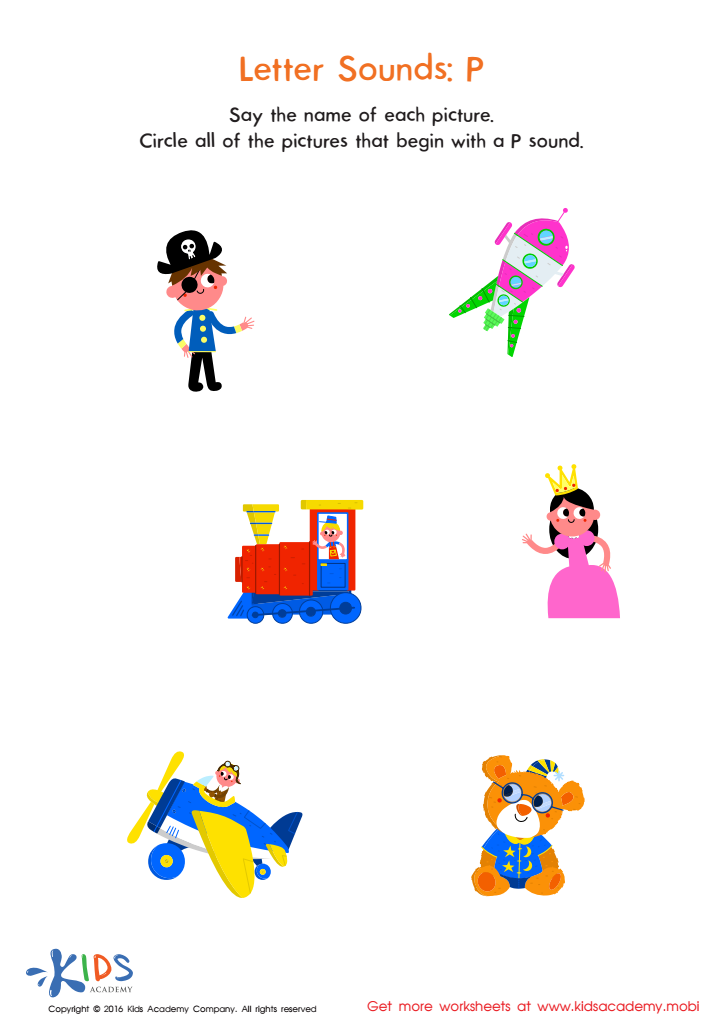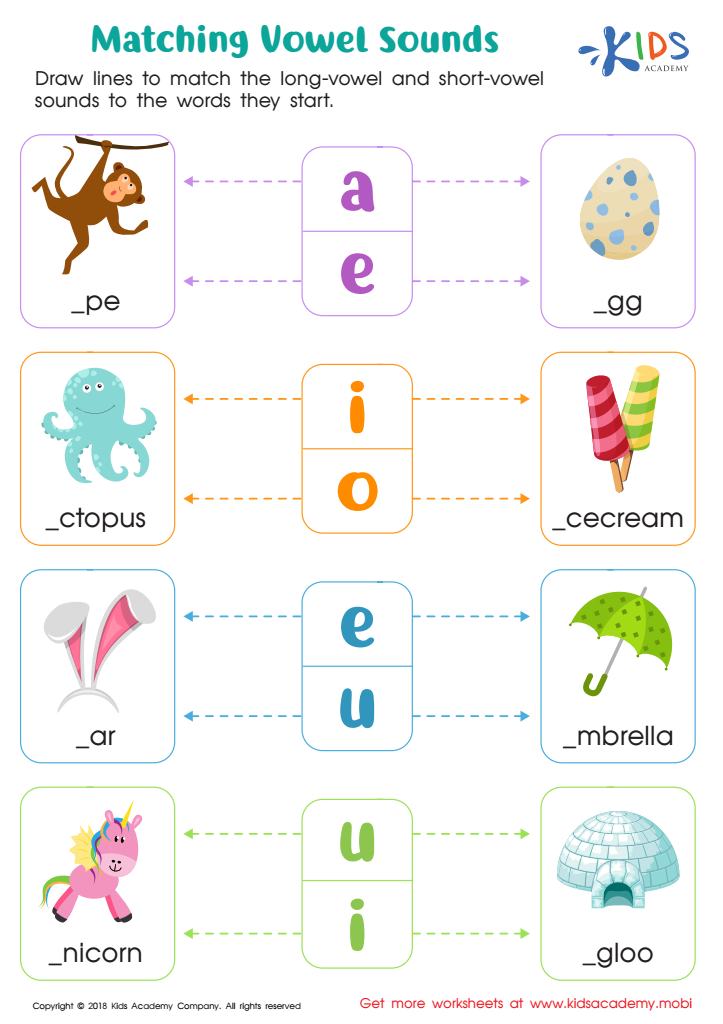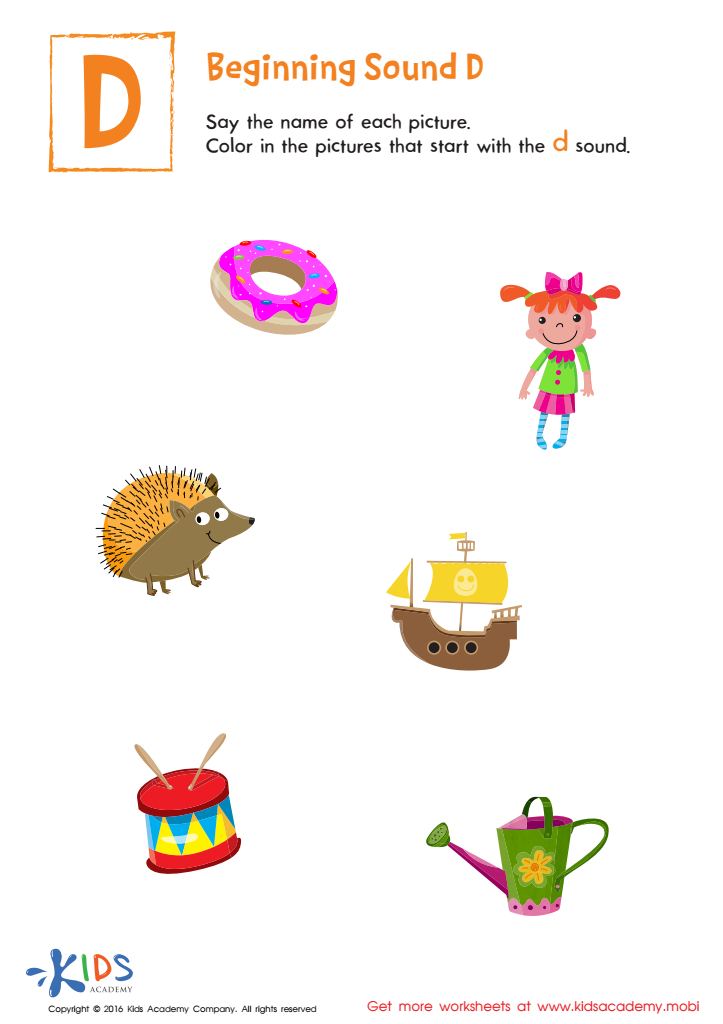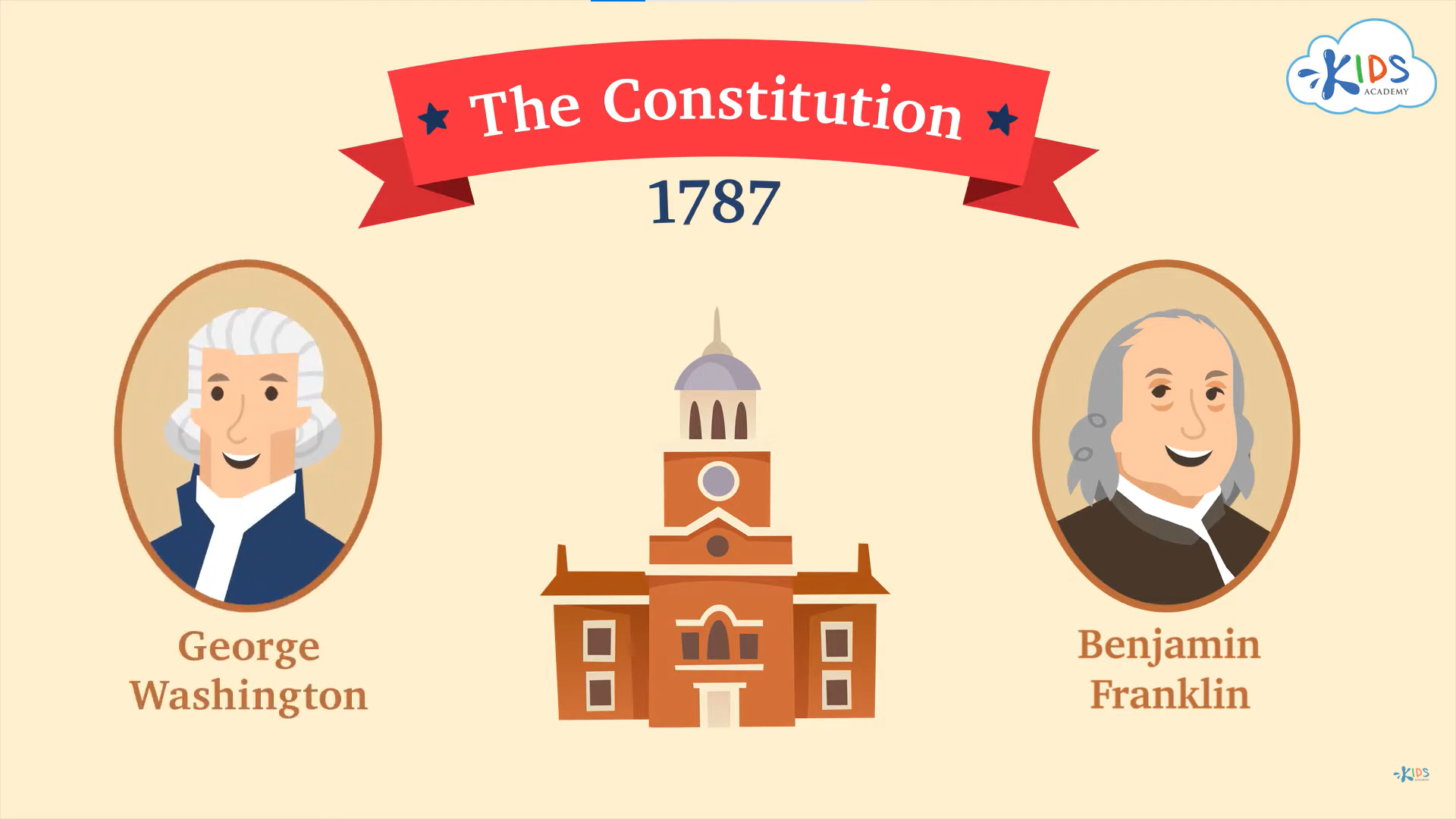Phonics development Normal Worksheets for Ages 3-7
3 filtered results
-
From - To
Discover engaging Phonics Development Normal Worksheets designed specifically for children ages 3 to 7! Our worksheets focus on enhancing early literacy skills through fun activities that promote sound recognition, letter-sound associations, and word formation. Each age-appropriate worksheet encourages interactive learning, making it easy for young learners to grasp phonics concepts at their own pace. Perfect for homeschoolers and educators, these resources help develop essential reading and writing foundations. With colorful illustrations and motivating exercises, children will enjoy mastering phonics while building confidence in their reading abilities. Start your child's phonics journey today and set the stage for lifelong learning!


Letter P Sound Worksheet


Matching Vowel Sounds Worksheet


Beginning Sound D Worksheet
Phonics development is essential for children aged 3-7 as it lays the groundwork for strong reading and writing skills. During these formative years, children's brains are particularly receptive to language acquisition. By understanding phonics, children learn the relationship between sounds and letters, enabling them to decode words independently. This skill is vital for their literacy journey, as it not only fosters reading fluency but also comprehension.
When parents and teachers prioritize phonics, they empower children to explore the world of books, enhancing their vocabulary and critical thinking abilities. Early phonics instruction supports children in feeling confident as readers, and a positive reading experience at a young age encourages a lifelong love of literacy.
In addition, research demonstrates that phonics instruction can help close the achievement gap for struggling readers. It can provide essential skills that are especially beneficial for those facing learning challenges. Overall, by caring about phonics development, parents and teachers create a more equitable foundation for all children, promoting enhanced academic performance and future success. Investing time in phonics benefits children significantly during a crucial developmental stage when they form essential language habits that will last a lifetime.
 Assign to My Students
Assign to My Students




















